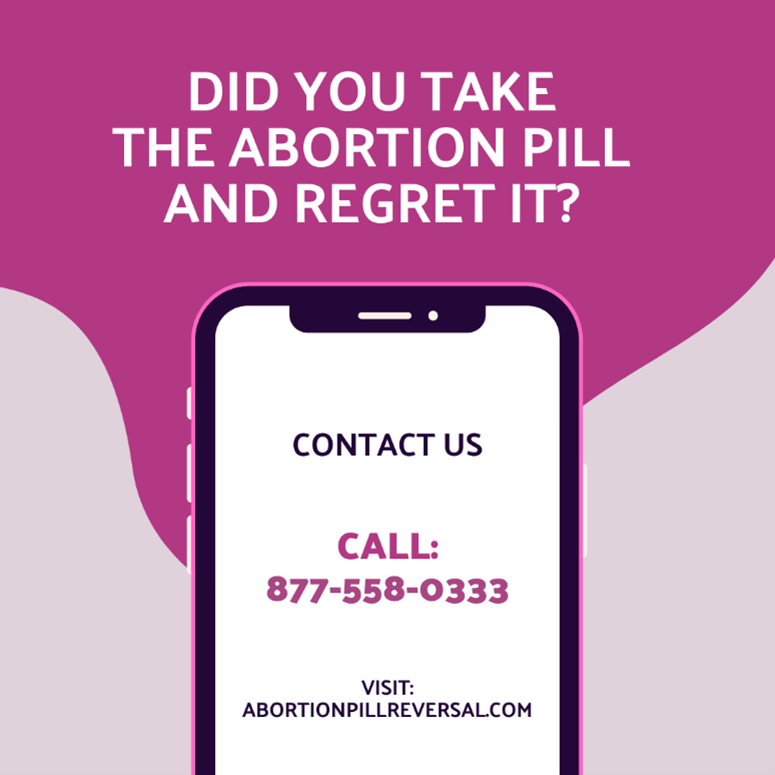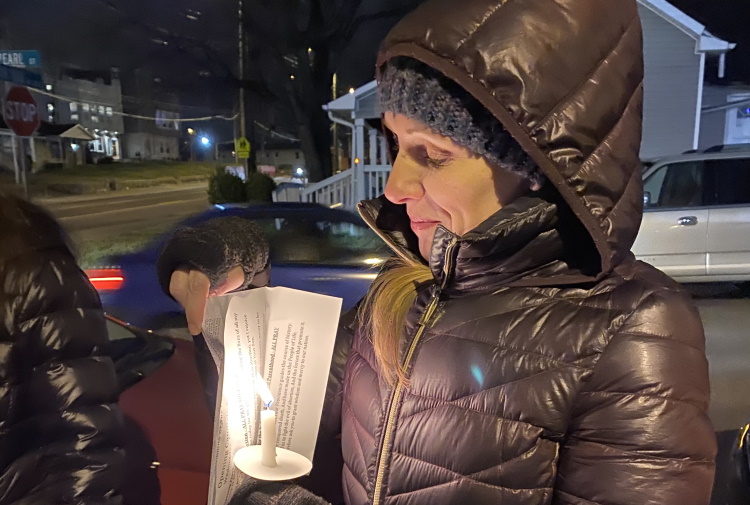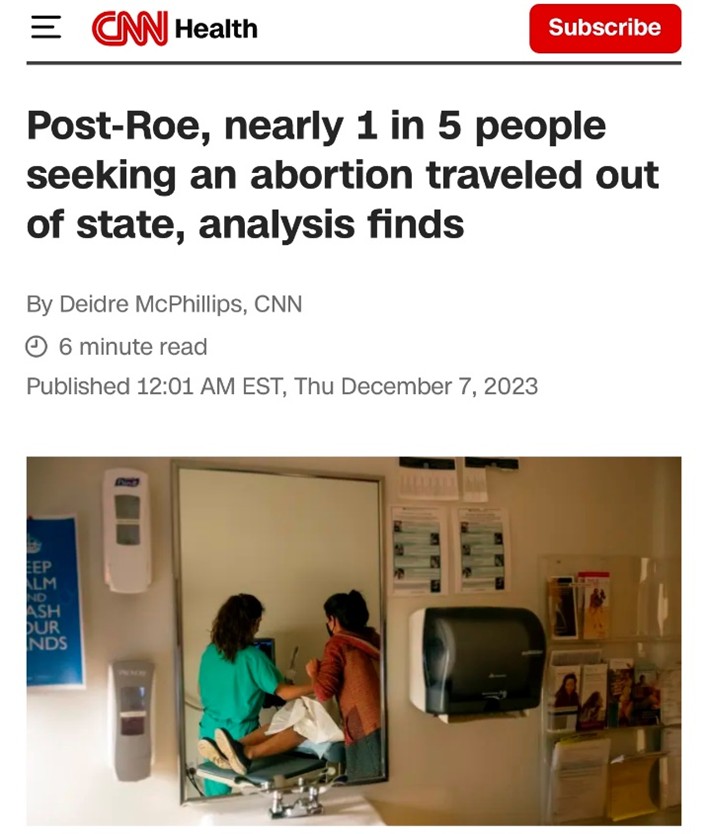
As the frontlines for abortion have continued to change leading up to and since the 2022 overturn of Roe v. Wade, the consideration for the dignity and safety of women who find themselves pondering abortion is fading further and further into oblivion. Troubling developments in abortion commerce are compounding the impact of abortion on women.
Most abortions now happen in homes, apartments, and dorms absent medical oversight and follow-up and with women facing the fallout on their own. But there are also growing trends in America of abortion tourism and abortions occurring while women are in transit or carrying out other obligations.
Some troubling examples we hear from women at the Abortion Pill Rescue Network include:
• Going to states with expanded abortion access in order to circumvent abortion laws.
• Completing an abortion during a family vacation or work travel, presuming minimal symptoms during the abortion process.
• Obtaining a late abortion with chemicals, laminaria (seaweed), or induced fetal demise (pharmacologic injection prior to the abortion), typically offered in limited locations by few abortion providers.
• Fulfilling work or school duties during their chemical abortion because taking time away is not financially feasible.
• Complying with an abuser who uses abortion to hide criminal activity.
[Click here to subscribe to Pregnancy Help News!]
Abortion tourism
Abortion tourism is increasing at alarming rates. Guttmacher now reports every one in five women seeking abortion are traveling out of state to obtain abortion, compared with one in 10 abortion clients just four years ago.
Plane tickets, gas cards, and train fare are now shaping the abortion landscape in America.
The New York Times reports a staggering 171,000 women traveled to another state to obtain their abortions in 2023.
Abortion tourism has more than doubled in just a four-year period and now makes up a fifth of recorded abortions.
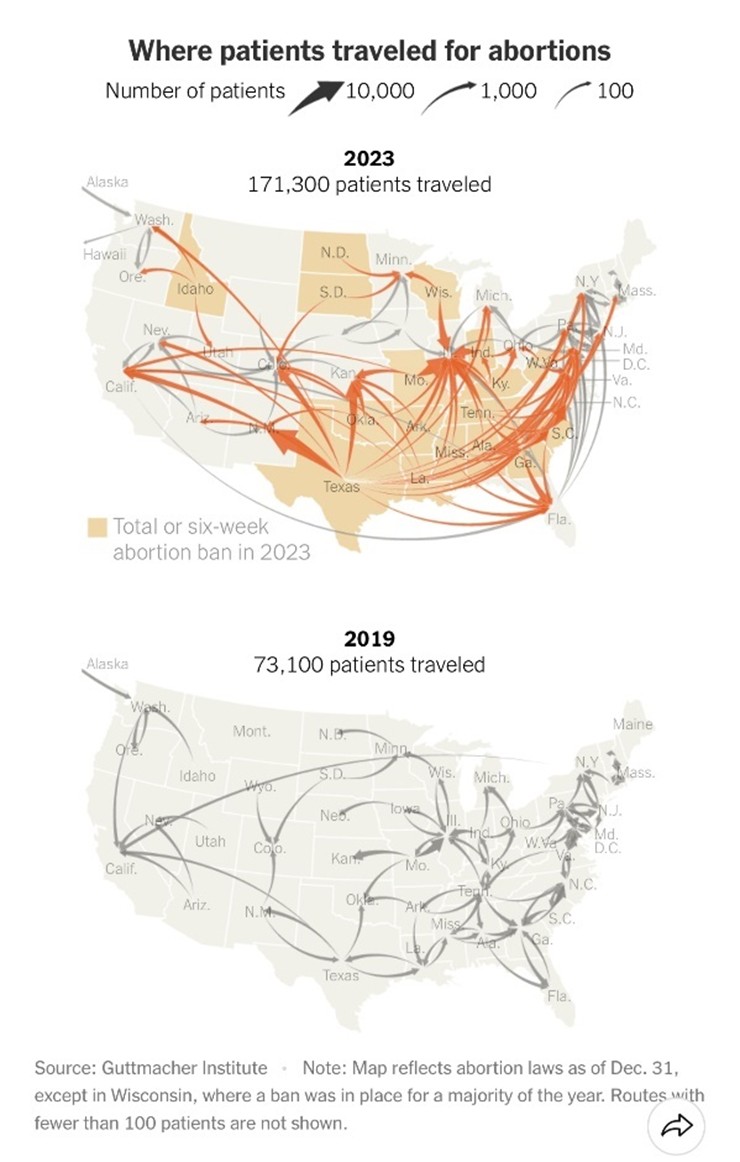
The reasons behind tourism abortion and abortion in transit
Some women travel due to limitations placed on abortion in their home states. One example of this was following passage of the Texas Heartbeat Act. Last year 35,000 Texans drove or flew out of state seeking abortion, primarily traveling to Colorado, Kansas, and New Mexico.
Sixteen thousand women from Southern states obtained abortion in Illinois. And North Carolina received 12,000 women from South Carolina and Georgia and provided them abortion access.
This crossing of state lines has reduced some abortion numbers in states with more stringent abortion regulation - but it has increased abortion rates in destination states.
Traveling during abortion
Some women opt to start their abortions as they travel. They are not working and have been falsely assured that symptoms will be no worse than a heavy period.
While most abortion providers advise women to undertake no travel for at least 24 hours after the abortion is complete, they also say that ‘if travel is necessary’ to be sure to locate the nearest emergency care.
Typically, bleeding begins within one-two hours after misoprostol, the second drug in the two-drug chemical abortion regimen. Some women experience heavy bleeding and pass large clots (the size of a lemon). However, since Big Abortion commonly minimizes the description of what happens during a chemical abortion, some women believe they can get on a plane or a bus even during the chemical abortion process.
Tweet This: There are growing trends in America of abortion tourism and abortions occurring while women are in transit or carrying out other obligations
Shipping abortion drugs to a location of your choice
Abortion tourism also includes shipping abortion pills to a hotel in instances where the woman wants to have more privacy away from parents, children, their partner or husband. Telemed and abortion website orders can be delivered wherever the purchaser designates, such as a P.O. Box, UPS or FedEx pick-up location, dorm, or campus mail center.
The U.S. Food and Drug Administration (FDA) continues to warn consumers about ordering the abortion pill through the mail and does not recommend purchasing mifepristone (the first chemical abortion drug) outside of the drug’s REMS safety standards (reserved “for certain medications with serious safety concerns”) – e.g., buying it online or personally transporting it from a foreign country. These warnings go out the window taking women's safety and dignity with them as Big Abortion feigns safety and promotes abortion at all costs absent accountability.
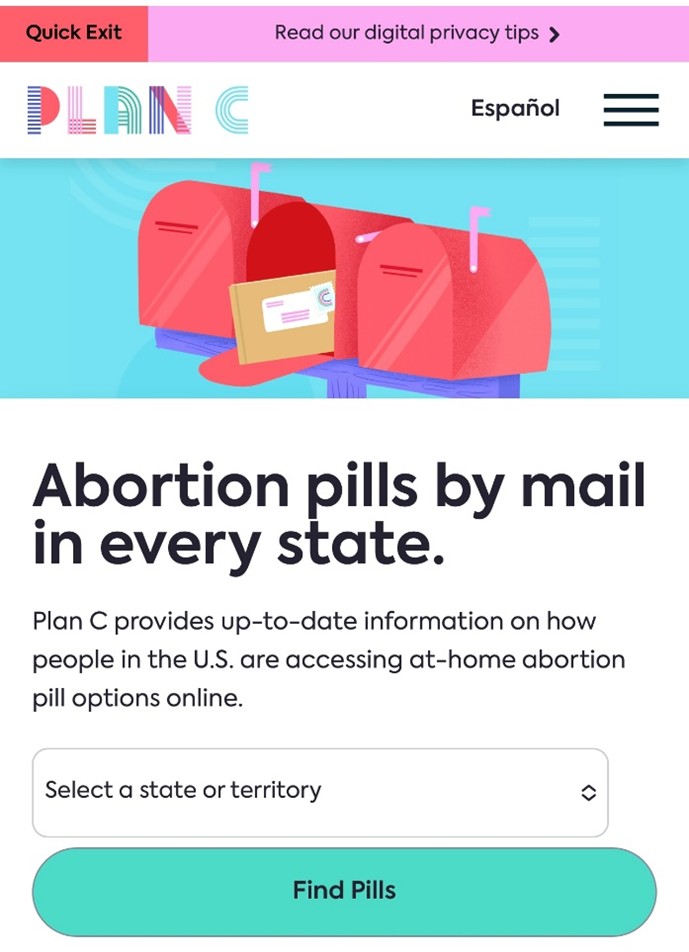
Illinois is seeing more out-of-state patients from more states than any other after putting millions of dollars into drawing women there.
Just in the last two years, Illinois has invested $23 million into expanding abortion access and so-called reproductive health care. Abortion providers in Illinois have increased their facility hours and staffing to accommodate the flood of women heading north for their abortions.
The Chicago Abortion Fund provides $880 to each woman seeking an abortion in Illinois, an increase from $545 in 2022, thanks to donations and a grant from the city of Chicago amounting to a staggering $1,000,000 each year.
The “abortion underground”
“Hey Jane” and others peddling abortion have normalized abortion travel while at the same time offering abortion from the “comfort and convenience of your phone.” They offer tips about how to take time off from work, paying for the abortion, travel accommodations, and preparing for the abortion while away from home. Calling themselves the “abortion underground,” they aid in the transport of women away from their homes and families to abort their children.
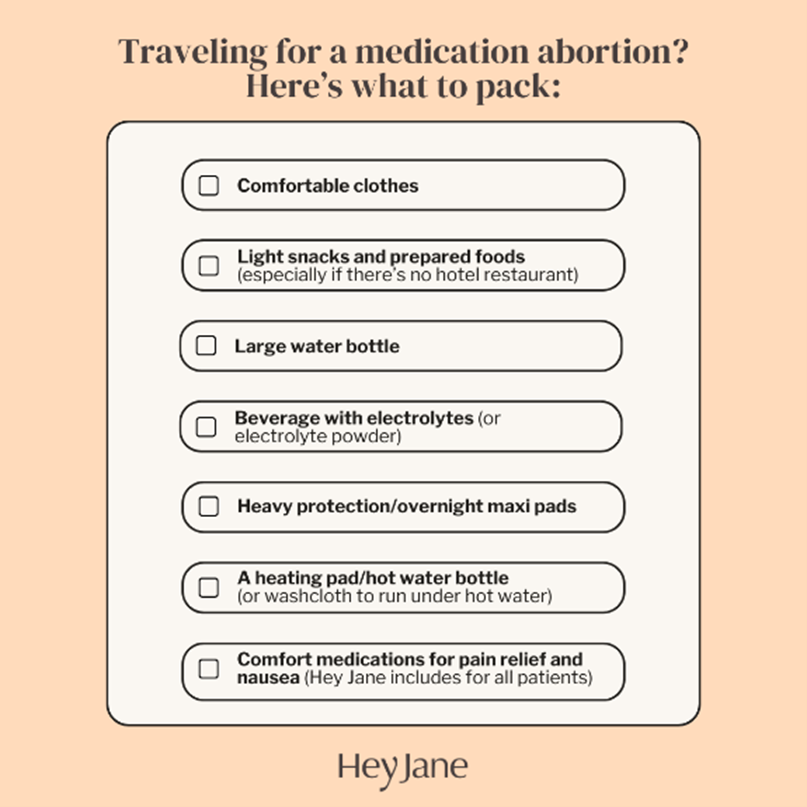
The explosion of out-of-state abortion travel has been met with support from abortion centers and abortion funds, which expanded access to their services and financial subsidies to women.
For example, the state of New York gives support for those crossing into their state for abortion with the promise of free transportation, lodging, meal assistance, and childcare.
The Brigid Alliance is an organization committed to transporting women to abortion. They provide travel, food, lodging, childcare, and “other logistical support.”
After the overturn of Roe, some abortion-advocate businesses have begun to cover travel expenses for employees seeking abortion. Amazon, Bank of America, CNN, Comcast, CVS, Dick’s Sporting Goods, Estee Lauder, Goldman Sachs Group, Hewlett Packard, Ikea, JP Morgan Chase, Kroger, New York Times, Lyft, Meta, PayPal, Starbucks, Target, Tesla, Uber, Walt Disney, Yahoo, Zillow, and many others are now paying not only for their employees’ abortions but also for any travel involved.
Sadly, traveling further isolates women who are already left to undergo the abortion process without medical oversight or emotional support.
Abortion trafficking
Abortion tourism creates a convenient route for abusers to cover their crimes.
Nearly 70% of women with a history of abortion describe their abortions as inconsistent with their own values and preferences, with one in four describing their abortions as unwanted or coerced.
An abuser can travel across state lines to purchase abortion pills for his or her victims. Or the victim can be physically taken across state lines in a place of isolation from those who know her well.
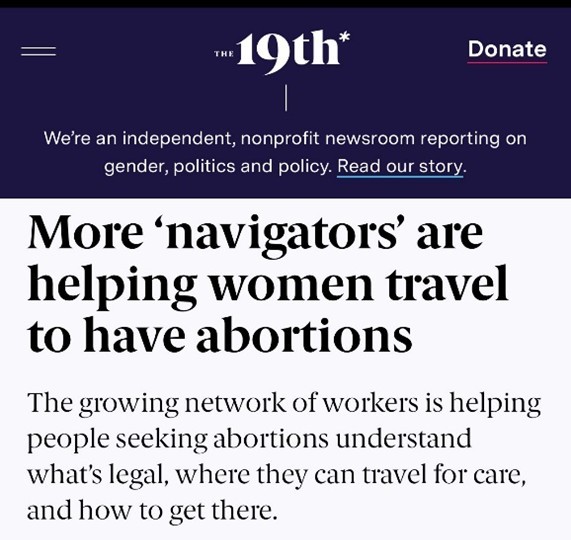
A study of 66 women who had been victims of human-trafficking revealed that they had 114 abortions among them. Coercion was, of course, a key factor in many of these abortions.
Those going to a Planned Parenthood facility cannot be assured they will be saved from their abusers. Planned Parenthood has been investigated multiple times for failure to report rape and sexual abuse.
Abuse of minors
Guttmacher confirms that the majority of states require parental involvement in a minor’s decision to have an abortion. However, those who abuse children have found a way around these laws by moving them to other states where abortion can be obtained.
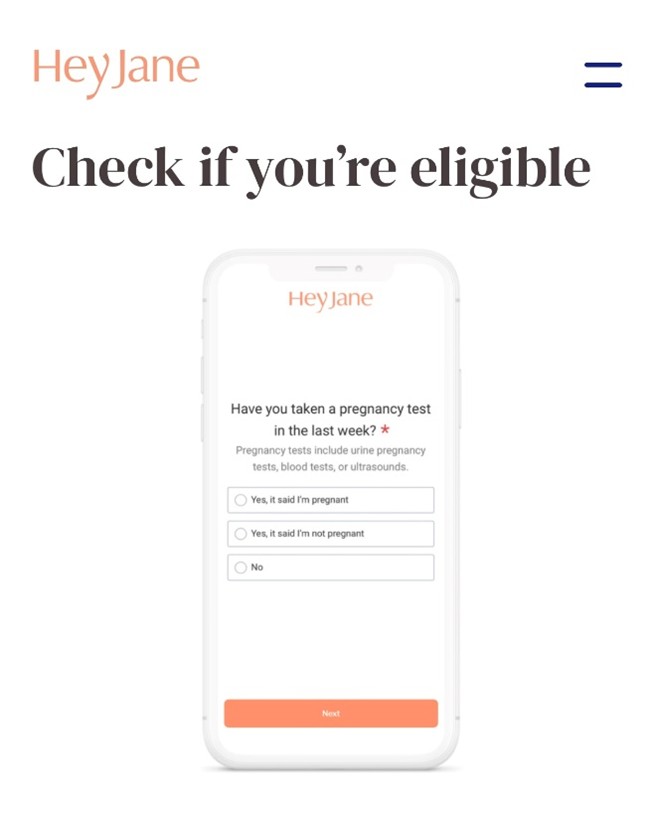
The rise of “abortion mini vacations”
In the last two years, Mexican organizations offering abortions have expanded locations for Mexican and U.S. residents alike. Marie Stopes International recently opened an abortion center in state of Quintana Roo in Cancún, Mexico, raising concerns of more abortion “vacation” destinations. Cancún is a popular tourist destination with multiple U.S. airports offering direct flights at reasonable costs.
Vacation locales can now be set up to receive American women for a cost similar to what they would pay to travel to another U.S. state. They can instead travel to get an “abortion mini vacation.”
Life-affirming hope
The good news is that some U.S. states are standing up for their children.
Idaho became the first state to outlaw “abortion trafficking,” defined as “recruiting, harboring or transporting” a pregnant minor to get an abortion or abortion medication without parental permission.
In May, Tennessee enacted a similar law. Alabama, Mississippi and Oklahoma have now introduced abortion trafficking bills.
Abortion Pill Reversal is available even when women are away from home
At the Abortion Pill Rescue Network, we’ve had an increase in cases of travel during the abortion and in every instance, we connect women with care both where they are and where they are going. Here are some recent examples:
• A woman left Florida - a state that currently limits abortion - for California - a state with abortion availability in all gestations of pregnancy. She immediately had regret, contacted the Abortion Pill Rescue hotline, and connected with a pregnancy help medical clinic. She started Abortion Pill Reversal in California and then continued follow-up care back in her home state.
• A couple in Europe started their abortion while on vacation. They found the APR hotline and called for assistance. In a city where they were strangers, they were prescribed progesterone very late at night and saved the life of their child, beginning prenatal care after returning to their home country.
• A woman who was traveling with family started her chemical abortion in Illinois and called the Abortion Pill Rescue hotline from Oregon. We were able to find her a pregnancy help clinic where she was and a continuum of medical care in her home state.
• An American client on a military base in Germany started a chemical abortion but soon had regret. German medical professionals were very quick and happy to help her with Abortion Pill Reversal.
Individual prescribers, clinics, hospitals, and pharmacists within the Abortion Pill Rescue Network are honored to help these women, who feel they must travel to end their pregnancy but change their minds, to have a second chance to choose life.
As a light of hope shining in the darkness – this is what makes Abortion Pill Reversal so powerful. Just when a woman may think all hope is lost, this life-affirming antidote to abortion is available wherever she is. The Abortion Pill Resecue Network is a team of medical professionals joining together across the country and the world to help women and ensure continuum of care and is a potent remedy to these latest abortion scourges for women.
Editor's note: Heartbeat International manages the Abortion Pill Rescue® Network (APRN) and Pregnancy Help News. Heartbeat is currently the subject of two lawsuits brought by state AGs over sharing information about Abortion Pill Reversal.




